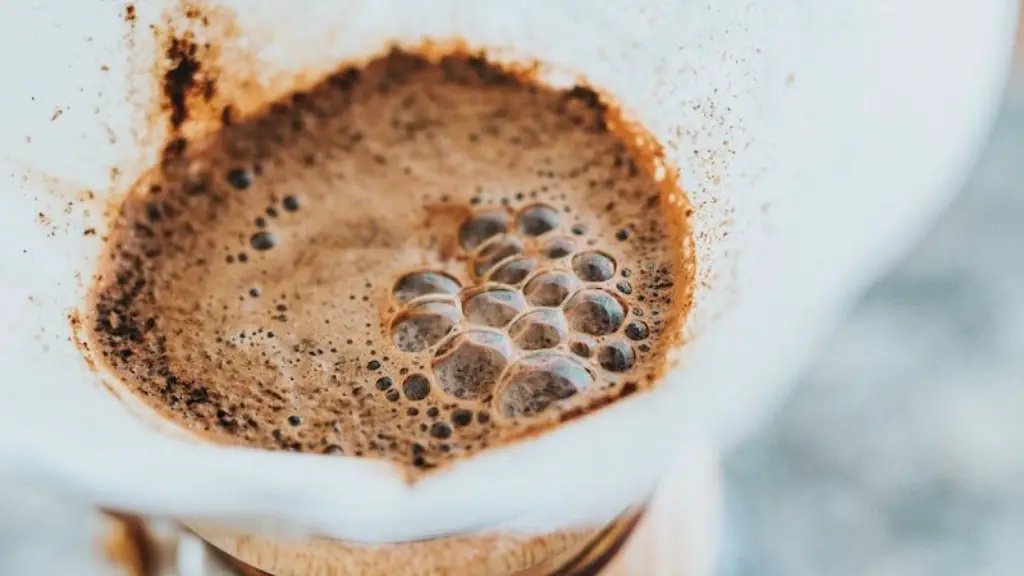Introduction:
Coffee is a widely consumed beverage around the world, and it can help people stay energized and focused. However, too much coffee, or one that is overly strong, can take a toll on the body. Drinking coffee late in the day can make it difficult to get to sleep, which can further aggravate any existing sleep issues.
Impact of caffeine on sleep:
The effects of caffeine can last in the body for up to eight hours, and this is why it is best to avoid caffeine within four to six hours of bedtime. Caffeine is a stimulant, and this is why it can interfere with sleep. Sleep is a restorative process, and without adequate sleep, people may face exhaustion and sleep deprivation. When people are sleep deprived, they are more likely to be irritable and have difficulty focusing, which can affect their productivity at work and their relationships.
Avoiding caffeine late in the day:
One of the best ways to ensure good sleep is to avoid caffeine late in the day. People should aim to stop drinking coffee after 2 pm, or at least four to six hours before bedtime. Even one cup of coffee in the morning can be enough to affect sleep, so it is important to be mindful of how much coffee is consumed over the course of the day. People should also opt for decaffeinated drinks such as herbal teas or decaf tea or coffee if they require a source of caffeine to function during the day.
Creating a bedtime routine:
An essential aspect of getting good sleep is to create a consistent bedtime routine. This means waking up and going to sleep at the same time every day, even on weekends and days off. This helps to train the body and even if people don’t feel particularly tired, if they go to bed at the same time, they are more likely to find it easier to get to sleep. People should also establish a wind-down routine before bed to signal to their brain that it is time for sleep. This can involve taking a warm bath or shower, reading a book, writing in a journal, or doing some guided stretching or yoga.
Techniques to relax:
In addition to a consistent bedtime routine, people should employ relaxation techniques to help them get to sleep. This can involve deep breathing exercises, progressive muscle relaxation, or listening to soothing music. Mindfulness meditation is also a great calm-inducing technique for helping people get to sleep. People should aim to keep their bedroom dark, quiet and stress free, and avoid screens and digital devices for at least an hour before bed.
Addressing insomnia:
Insomnia can be a side-effect of drinking coffee, and this is why it’s important to address it promptly and seek professional help if necessary. Cognitive-behavioral therapy (CBT) is a brief and effective intervention that can help to reset people’s sleep patterns and assist them to develop good sleep hygiene habits. Lifestyle changes such as exercising during the day, avoiding caffeine, and avoiding screens can also help.
Exploring alternatives to coffee
Alternative beverages:
Avoiding coffee can be a challenge, but there are plenty of alternatives to choose from. Herbal teas such as chamomile, valerian root, or lavender tea can help people relax and get to sleep. There are also tea blends available that are specifically designed to assist with sleep. Green tea and matcha tea contain caffeine, but in lower levels than coffee. People can also try healthy herbal coffee substitutes such as dandelion root coffee or chicory root coffee.
Considering the source:
For those who don’t want to go without coffee entirely, it is important to consider the source. Organic, shade-grown, or direct trade coffee has a lighter flavor and less caffeine. This means that people can still enjoy the taste of coffee late in the day, but its effects on the body will be less intense.
Making lifestyle changes:
Taking time to refine a bedtime routine and making lifestyle changes such as exercising and avoiding caffeine late in the day can help people get to sleep. People can also get up to date on healthy nutrition and adapt their daily diet to ensure that their body has all the necessary nutrients during the day. This can help reduce fatigue and improve overall energy, as well as improving sleep.
Identifying underlying causes of insomnia.
Anxiety and stress:
Anxiety and stress can often be the underlying cause of insomnia. It is important to recognize that the body is under constant stress and to build in periods of rest throughout the day, perhaps with a daily meditation practice or a mindful activity such as journaling. Learning mindful breathing techniques and practicing relaxation can also help reduce tension.
Receiving professional help:
If people are struggling with sleep, it is important to seek professional help as soon as possible. Sleep deprivation can lead to a range of physical and mental health problems, so it is important to take steps to get the sleep you need. A sleep specialist or therapist can help people identify and address the underlying cause and construct a tailored plan to help improve sleep.
Treating underlying issues:
If people are struggling with underlying issues such as depression, anxiety, or stress, it is essential to seek professional help. Talking therapies such as cognitive behavioral therapy (CBT) and one-on-one counseling can be very helpful in addressing underlying issues. There are also medications that can help people manage their symptoms and get the sleep they need.
Making dietary adjustments
Avoiding fatty and sugary foods:
Eating too much fatty and sugary food can often have a debilitating effect on sleep. People should try to eat in moderation and consume a balanced diet that contains fresh fruits and vegetables and is low in saturated fats and sugars. Eating higher quality and unprocessed foods can provide sustained energy and help people feel energized during the day, without lessening the need for sleep.
Consuming adequate protein:
Consuming adequate levels of protein is also important in reducing fatigue and helping to establish healthy sleep patterns. Protein helps to break down food in the body, and it can also help to rebalance blood sugar levels, which can improve clarity of thought and make it easier to get to sleep.
Adding magnesium to the diet:
Adding magnesium rich foods to the diet such as nuts, seeds, and dark leafy greens can help the body synthesize its natural hormones, which can help with sleep. Magnesium is known to help reduce stress, which can help establish a deeper and steadier sleep. Magnesium can also be supplemented, however it should always be taken in consultation with a doctor or registered healthcare professional.
Exercising during the day
Engaging in daily exercise:
Engaging in regular physical activity during the day can help to reduce fatigue and make it easier to get to sleep. Mindful activities such as yoga and pilates can help to take off the edge of stress and can be practiced even if it is just for a few minutes. Going for a brisk walk in the sunshine can also help to reduce the effects of coffee and make it easier to get to sleep.
Reducing technology exposure:
Having a workout routine that doesn’t involve screens can help reduce technology exposure before bed, which can make it easier to relax and get to sleep. Technology is stimulating and can even reduce the body’s natural production of melatonin, which further aggravates any existing sleep issues.
Increasing exposure to natural light:
Exposure to natural light is also important for good sleep, as this helps to set the body’s internal clock and signal to the brain when it is time for sleep. Taking regular breaks for fresh air and engaging in daily exercise or physical activity can help people feel more energized, and can prepare the body for sleep.
Finding the right balance:
It is important to listen to the body’s natural signals and find the right balance of coffee consumption and relaxation. Everyone’s body is different, and so it is important to adjust coffee consumption accordingly and to listen to the body to determine what is best for it. In general, avoiding coffee after 2 pm and drinking decaffeinated beverages can help people to relax and get the sleep they need.




